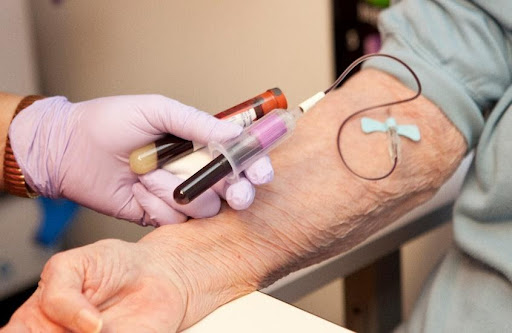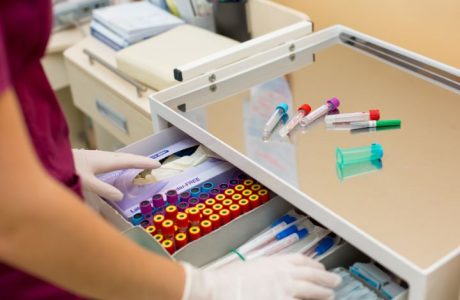Phlebotomy Technician Classes: 5 Things You Should Learn
A career as a phlebotomy technician can be rewarding. This is because the work done daily can make a difference in the lives of others. If you have decided that you want to pursue a career as a phlebotomy technician, congratulations. The first step on your journey towards becoming a phlebotomy technician is getting the right training. This means identifying the phlebotomy school that will be right for you. As part of this process, you’ll also want to know what types of things you will learn in your phlebotomy technician classes. As you look at different schools, be sure to ask about the curriculum for phlebotomy technician classes so you can see the various topics that will be covered. Receiving the proper phlebotomy education is essential as you pursue your new career.
If you have started to research phlebotomy schools, you are in luck. Our blog today should help you in this process. We are breaking down five of the things you should learn as part of your phlebotomy technician classes. Continue reading below to learn more about these topics and why they may be critical to success as you pursue your phlebotomy career.
1. Infection Control
When you think about phlebotomy training, infection control may not be the first thing you think of, but it is essential. After all, instruction on this topic in your phlebotomy classes can introduce you to the standard precautions for prevention of communicable disease transmission. This may include standards set forth by the Center for Disease Control (CDC). Students should also be exposed to good safety measure as well as instruction in first aid. Since phlebotomy technicians work closely with patients and bodily fluids, it’s essential that they understand how to operate in a safe manner on the job, hence the importance of infection control.
2. Anatomy & Physiology
As healthcare professionals, phlebotomy technicians should also have a basic understanding of anatomy and physiology. As a result, make sure your phlebotomy technician classes cover these two very important topics. In addition, as part of your phlebotomy technician classes, the anatomy and physiology section should cover various anatomical systems. Again, this might not be something you immediately think of in terms of topics in your phlebotomy classes, but anatomy and physiology can set a foundation for other information you may learn later in your training.
3. Medical Terminology
To be successful in your phlebotomy career, having a grasp of applicable medical terminology is also necessary. This includes an understanding of the terms a phlebotomist might use on the job as well as those that others may use that a technician needs to know and understand. Knowledge of medical terminology in phlebotomy technician classes is another important concept that you will want to ensure you have exposure to as part of your phlebotomy education.
4. Venipuncture Procedures
Alright, now we are getting into the ‘good stuff’ so to speak. When you think about phlebotomy technician jobs, one of the first things you probably think of is someone drawing blood. As a result, your phlebotomy technician classes should provide you with the necessary instruction and practice in venipuncture procedures. As part of your phlebotomy classes, you may be exposed to the proper procedure for venipuncture and capillary collections and specimen handling and processing. During your phlebotomy training program, you may also be required to perform live venipuncture and capillary collections on classmates, to ensure you have mastered the procedures.
5. Ethical, Legal, and Regulatory Matters
Lastly, a phlebotomy technician should be aware of the ethical, legal, and regulatory matters needed to work in this role. For example, phlebotomy technicians should be aware of HIPAA, and how to protect patient privacy. In addition, they should understand various regulations that facilities, local cities, and states may have in place along with those put forth by the federal government. As we discussed earlier, safety is a top priority for all healthcare providers. As a result, it is paramount for phlebotomy technicians to fully understand the rules in which they must abide by while on the job.
Well, there you have it! We have discussed five things you should learn as part of your phlebotomy technician classes. Keep in mind, one’s success in their phlebotomy career is reliant on more than just the five things we discussed above. We’re just sharing these five topics to give you a sense of what you should learn as part of your phlebotomy education.
Phlebotomy Technician Program | Training Direct
If you are ready to enroll in phlebotomy technician classes and take the next step in pursuing your new career, Training Direct can help you get on your way. The Phlebotomy Technician program at Training Direct is designed to help students obtain the knowledge and skills necessary to pursue entry-level jobs as a phlebotomy technician. In addition, the program at Training Direct will expose students to topics such as the collection, processing, and distribution of laboratory specimens according to established procedures. During the Phlebotomy Technician program at Training Direct, emphasis will be placed on safety standards, legal and ethical considerations, as well as quality control procedures.
The Phlebotomy Technician program at Training Direct is designed to be completed in as little as 3-weeks and it is offered at the Bridgeport, CT and Danbury, CT campuses. Day, evening, and weekend classes are available for the Phlebotomy Technician program; however, schedule availability will vary by location.
Contact us today to learn more about the Phlebotomy Technician program at Training Direct!





